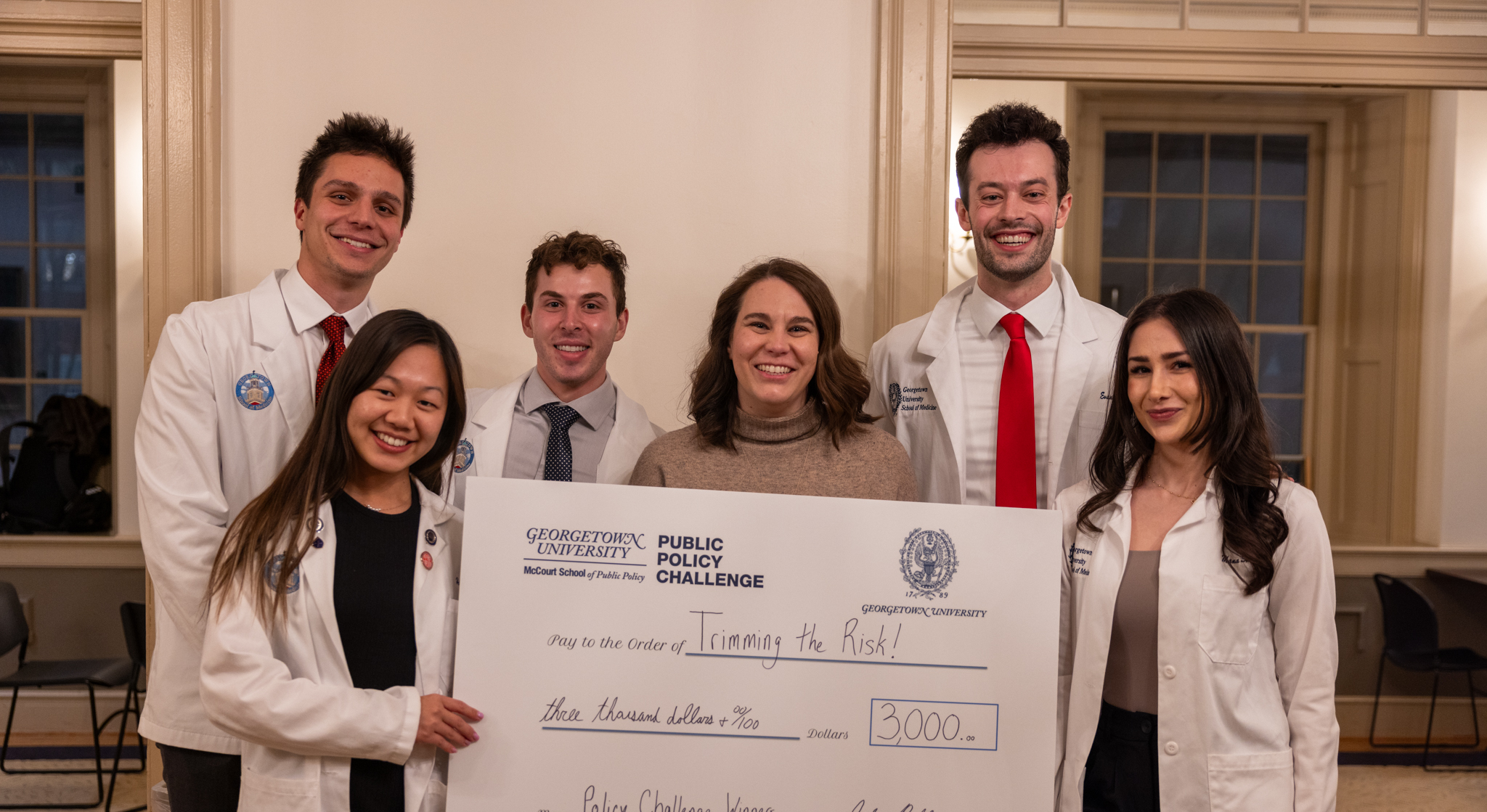Georgetown Public Policy Challenge celebrates a decade of innovative policy solutions — and a growing future
Since 2014, the McCourt School of Public Policy’s competition has introduced graduate students across disciplines to the policymaking process.
While the participants and policy proposals arising from the Georgetown Public Policy Challenge have changed over the past decade, the core tenets of community-centered solutions and student engagement in issues affecting communities across the District of Columbia have remained steadfast.
The annual graduate student competition aimed at tackling local policy issues celebrated 10 years of impact this year. Previous winners have pitched a wide range of proposals — from bridging the digital divide for at-risk students to assisting young parents and their children experiencing homelessness.
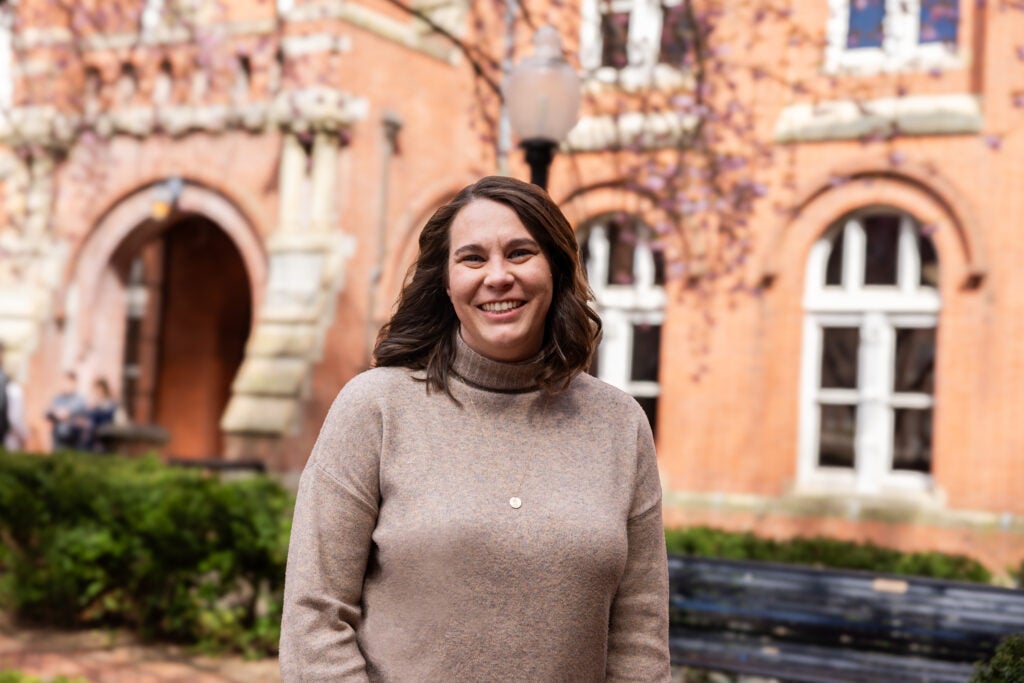
Jaclyn Clevenger, director of student engagement at the McCourt School, founded the Georgetown Public Policy Challenge in 2014 after recognizing the students’ interest in local career opportunities.
McCourt School Director of Student Engagement Jaclyn Clevenger , who founded the Georgetown Public Policy Challenge in 2014, saw that students at the school had a strong interest in careers at a local level and has used the opportunity to get participants from diverse backgrounds to learn more about where they’re living.
Leveraging this enthusiasm, she has actively engaged participants from diverse backgrounds to deepen their understanding of their local community. The Challenge later evolved to include all graduate students across schools and has helped to break down existing silos at Georgetown, she said.
Students form groups in January to identify a local policy issue, develop a policy memo and prepare to give an oral presentation in February. Five finalist teams are selected to incorporate feedback received to refine their presentations for the live final-round event in early April, which invites audience members from across the Georgetown community. All finalist teams receive a $1,500 scholarship prize, while the winning team receives $3,000.
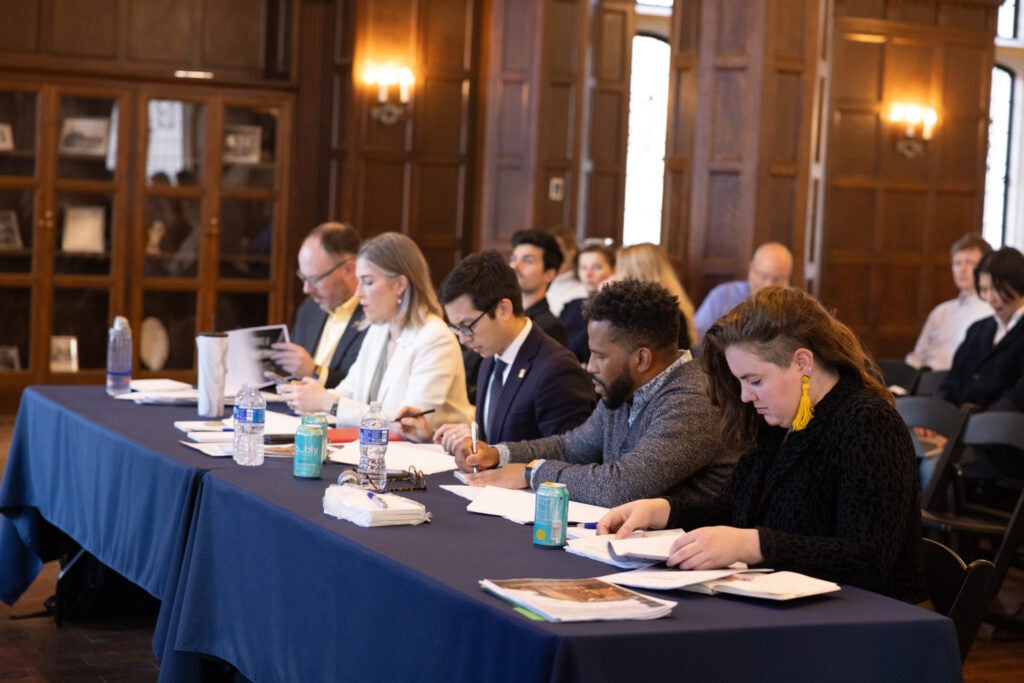
Student presentations are evaluated by a panel of Georgetown faculty and staff, former Policy Challenge winners, and local government and nonprofit leaders working on issues that directly impact the DC community.
A panel of Georgetown staff and alumni, including previous winners, judges the Challenge based on criteria such as understanding the targeted problem, implementation plan quality and overall feasibility.
Much has changed across society since the Challenge was founded in 2014 — from extraordinary elections to public health and environmental crises — but one of the most significant shifts has been how engaged students have become in listening to DC community members about their needs, according to Clevenger.
“The students go out into the community, taking the human-centered design approach to establishing these proposals and seeing how they can help the folks they’re working with,” said Clevenger.
One of the most rewarding aspects of the Challenge for students and judges alike is how some participants expand their passion for the proposals into careers after graduation, regardless of whether they win.
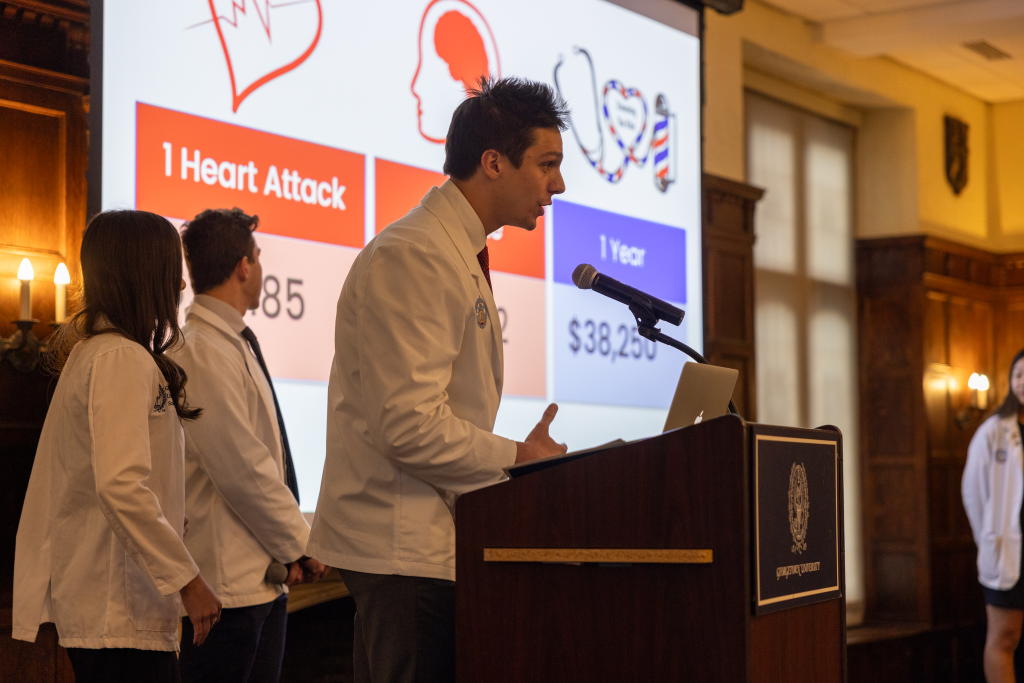
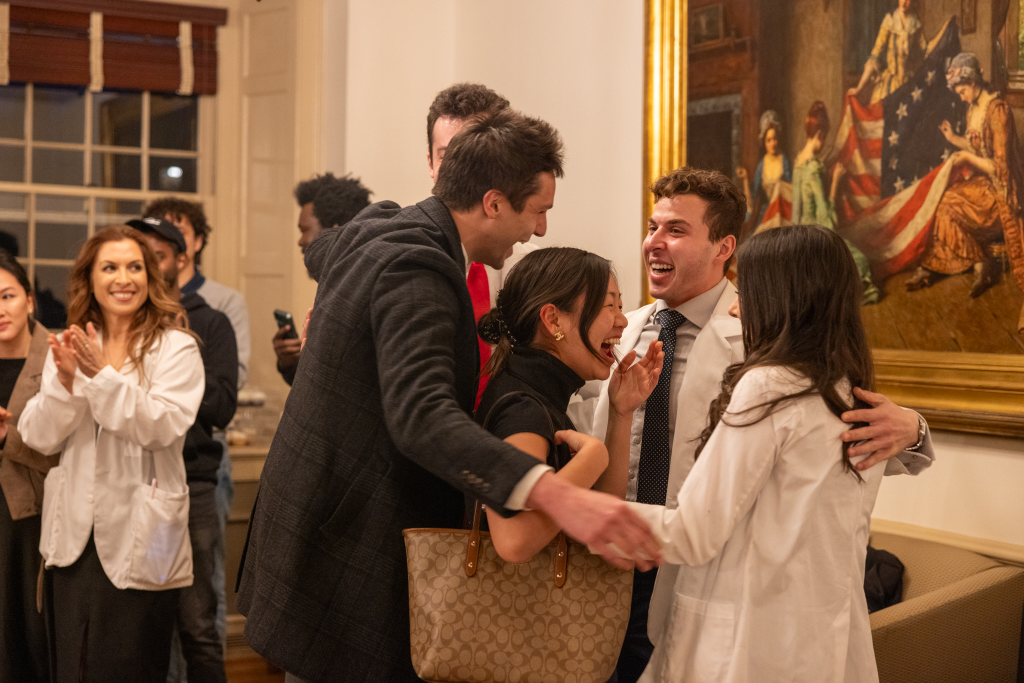
The School of Medicine team was awarded a scholarship prize of $3,000 for winning the 2024 Georgetown Public Policy Challenge.
This year, a team of Georgetown School of Medicine students, who entered the previous year without success, returned to the competition with a restructured proposal and won. Their pitch suggested a new partnership between the DC government and local barbershops to increase blood pressure readings for at-risk patients.
Clevenger said students returning to compete multiple times or to judge the Challenge as alumni are the reason the competition has achieved so much success going into its 10th anniversary. She hopes the McCourt School’s new location in downtown Washington, DC, will create opportunities for undergraduate participation and partnership with other local universities.
“I think the Challenge is only going to continue to grow in the next few years,” said Clevenger.
